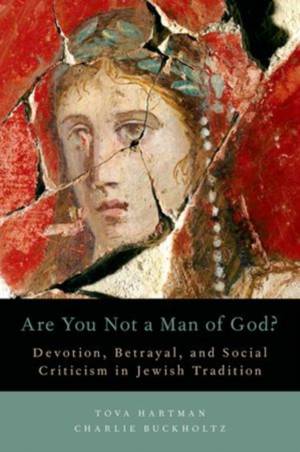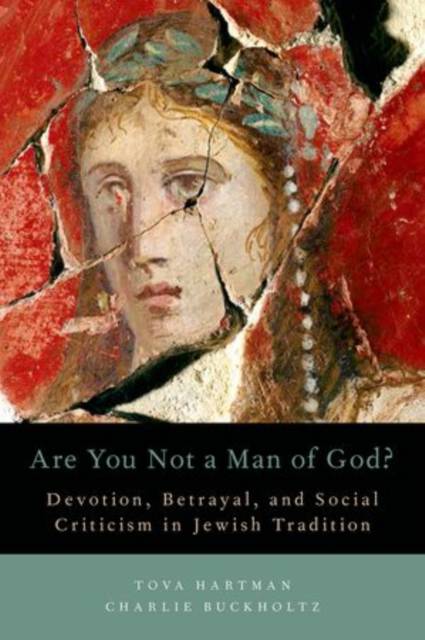
Door een staking bij bpost kan je online bestelling op dit moment iets langer onderweg zijn dan voorzien. Dringend iets nodig? Onze winkels ontvangen jou met open armen!
- Afhalen na 1 uur in een winkel met voorraad
- Gratis thuislevering in België vanaf € 30
- Ruim aanbod met 7 miljoen producten
Door een staking bij bpost kan je online bestelling op dit moment iets langer onderweg zijn dan voorzien. Dringend iets nodig? Onze winkels ontvangen jou met open armen!
- Afhalen na 1 uur in een winkel met voorraad
- Gratis thuislevering in België vanaf € 30
- Ruim aanbod met 7 miljoen producten
Zoeken
Are You Not a Man of God?
Devotion, Betrayal, and Social Criticism in Jewish Tradition
Tova Hartman, Charlie Buckholtz
Hardcover | Engels
€ 140,95
+ 281 punten
Omschrijving
Are You Not a Man of God? challenges the accepted readings of several iconic supporting characters from canonical stories of Jewish tradition. These characters have been appropriated throughout history to represent and reinforce central cultural values: the binding of Isaac and the religious value of sacrificing relationship for a higher purpose; the biblical Hannah, appropriated by the rabbis as an archetype of the spirit and practice of prayer; the Talmudic Beruriah and the significance of women's learning and knowledge; and the struggle for intellectual autonomy of the rabbis of the Talmudic story known by its tag-line, "It is not in heaven!" Tova Hartman and Charlie Buckholtz make use of religious, psychological, philosophical and literary perspectives to bring these characters to life in their multiple incarnations, examining their cultural impact and varied symbolic uses.
These are texts that have been studied widely with characters that are known well. This study shows, however, that the dominant interpretations mask darker, more insightful, and ultimately more critical dimensions of these important figures. Hartman and Buckholtz discover muted voices of personal betrayal and criticism that resonate as damning social critiques of the rabbis themselves. These critiques often highlight the ways in which cultural authorities use, and abuse, their power; revealing the implications of these moral failings on their legitimacy as communal leaders. In these voices of social criticism, the rabbis evince an awareness of their own vulnerability to such abuses and failings as well as their hurtful, marginalizing effects on members of less powerful social groups.
These are texts that have been studied widely with characters that are known well. This study shows, however, that the dominant interpretations mask darker, more insightful, and ultimately more critical dimensions of these important figures. Hartman and Buckholtz discover muted voices of personal betrayal and criticism that resonate as damning social critiques of the rabbis themselves. These critiques often highlight the ways in which cultural authorities use, and abuse, their power; revealing the implications of these moral failings on their legitimacy as communal leaders. In these voices of social criticism, the rabbis evince an awareness of their own vulnerability to such abuses and failings as well as their hurtful, marginalizing effects on members of less powerful social groups.
Specificaties
Betrokkenen
- Auteur(s):
- Uitgeverij:
Inhoud
- Aantal bladzijden:
- 224
- Taal:
- Engels
Eigenschappen
- Productcode (EAN):
- 9780199337439
- Verschijningsdatum:
- 21/02/2014
- Uitvoering:
- Hardcover
- Formaat:
- Genaaid
- Afmetingen:
- 155 mm x 236 mm
- Gewicht:
- 408 g

Alleen bij Standaard Boekhandel
+ 281 punten op je klantenkaart van Standaard Boekhandel
Beoordelingen
We publiceren alleen reviews die voldoen aan de voorwaarden voor reviews. Bekijk onze voorwaarden voor reviews.











